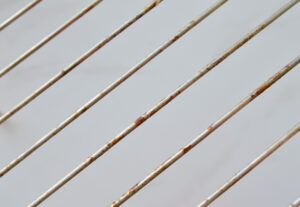Bronze wire, a timeless and robust material, has been used for centuries across various industries. Artisans, engineers, and hobbyists alike need its unique properties, whether they want to create ancient art or modern engineering. As we explore the history, properties, and diverse uses of bronze wire in this comprehensive blog, we will illustrate why so many people choose it as a material.
The Historical Significance of Bronze Wire
Bronze, an alloy primarily composed of copper and tin, has played a pivotal role in human history. The discovery of bronze marked the beginning of the Bronze Age, a period characterised by advancements in metallurgy and tool-making. The introduction of bronze wire can be traced back to ancient civilisations, where it was used for crafting jewelry, tools, and various artifacts.
In ancient Egypt, bronze wire was utilized to create intricate jewelry pieces, showcasing the metal’s malleability and strength. Similarly, the Greeks and Romans employed bronze wire in their engineering and architectural feats, from the construction of ship fittings to the creation of intricate sculptures. These early uses underscore the material’s enduring appeal and functionality.
The Properties of Bronze
Understanding the properties of bronze wire is crucial to appreciating its durability and versatility. Some key characteristics include:
Strength and Durability: Bronze wire is known for its exceptional strength and resistance to wear and tear. This makes it ideal for applications requiring long-lasting performance, such as in industrial machinery and marine environments.
Corrosion Resistance: One of the most significant advantages of bronze is its resistance to corrosion, particularly in seawater. This property makes bronze wire suitable for marine applications, such as in boat fittings, fishing equipment, and underwater cables.
Malleability: Despite its strength, bronze wire is highly malleable. It can be easily bent, twisted, and shaped, making it a favorite among artists and craftsmen for creating detailed and intricate designs.
Conductivity: Bronze wire conducts electricity efficiently, which is why it is often used in electrical and electronic applications. It provides a reliable and durable alternative to other conductive materials like copper.
Aesthetic Appeal: Bronze has a distinctive, attractive appearance that ranges from a golden hue to a rich, dark patina over time. This aesthetic quality enhances its appeal for decorative and artistic purposes.
Versatile Applications of Bronze Wire
Bronze wire’s unique properties lend themselves to a wide range of applications across different fields. Let’s explore some of the most notable uses:
1. Jewelry Making
Bronze is a popular choice among jewelers due to its strength, malleability, and aesthetic appeal. It can be used to create a variety of jewelry items, including rings, bracelets, necklaces, and earrings. The wire can be easily shaped into intricate designs, allowing for the creation of unique and personalised pieces. Additionally, its durability ensures that the jewelry can withstand daily wear and tear.
2. Sculpture and Art
Artists and sculptors often use bronze wire to create stunning works of art. Its ability to hold its shape while being flexible enough to manipulate makes it ideal for constructing sculptures, wireframe models, and other artistic creations. The wire can be used on its own or combined with other materials to add texture and depth to artworks.
3. Industrial Applications
In the industrial sector, bronze wire is valued for its strength and resistance to corrosion. It is commonly used in the manufacturing of springs, fasteners, and wire mesh. Its ability to withstand harsh environments makes it suitable for use in marine and automotive applications, where components are frequently exposed to moisture and corrosive substances.
4. Electrical and Electronic Applications
Bronze’s excellent conductivity and durability make it a reliable choice for electrical and electronic applications. It is used in the production of electrical contacts, connectors, and wiring. Its resistance to corrosion ensures that electrical connections remain stable and reliable over time, even in challenging environments.
5. Musical Instruments
Bronze wire is also used in the production of musical instruments, particularly in the strings of pianos and other stringed instruments. The wire’s strength and elasticity provide the necessary tension and vibration for producing clear and resonant sounds. Musicians and instrument makers appreciate bronze wire for its ability to enhance the quality of their instruments.
6. Gardening and Outdoor Use
In gardening and outdoor applications, bronze wire is often used for trellises, plant supports, and garden art. Its resistance to corrosion makes it an ideal choice for outdoor use, where it will be exposed to the elements. Gardeners and landscapers value bronze for its combination of strength, flexibility, and aesthetic appeal.
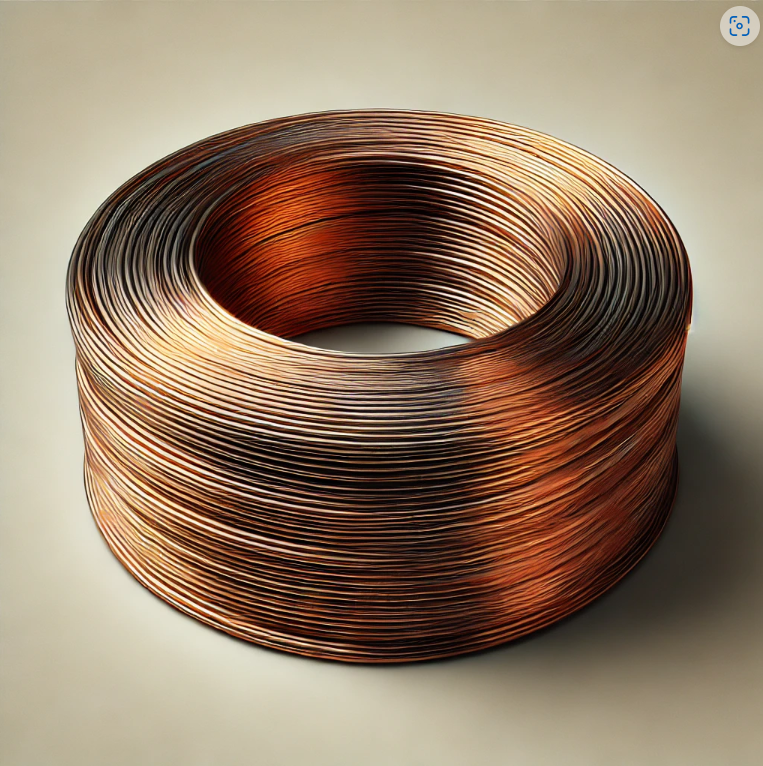
How to Choose the Right Bronze Wire for Your Project
Selecting the appropriate bronze wire for a specific project involves considering several factors, including the wire’s composition, gauge, and intended use. Here are some tips to help you make the right choice:
Composition: Bronze wire can vary in its composition, with different ratios of copper to tin and the inclusion of other elements like phosphorus or silicon. Phosphor bronze, for example, contains a small amount of phosphorus, enhancing its strength and wear resistance. Choose the composition that best suits your project’s requirements.
Gauge: The gauge of the wire refers to its thickness. Thicker gauges provide more strength and durability, while thinner gauges offer greater flexibility and ease of manipulation. Consider the specific needs of your project when selecting the wire gauge.
Application: Think about the end use of the bronze wire. For decorative purposes, you might prioritise aesthetic qualities, while for industrial applications, durability and resistance to corrosion will be more critical. Match the wire’s properties to the demands of your project.
Supplier Quality: Ensure that you source your bronze wire from reputable suppliers who offer high-quality materials. This guarantees that you are getting a product that meets industry standards and will perform reliably in your application.
Caring for and Maintaining Bronze
While bronze wiring is known for its durability and resistance to corrosion, proper care and maintenance can extend its lifespan and keep it looking its best. Here are some tips for caring for bronze wire:
Cleaning: Regular cleaning can help prevent the buildup of dirt and grime on bronze wire. Use a soft cloth or brush to gently clean the wire, avoiding abrasive materials that could scratch its surface. For more thorough cleaning, a mixture of mild soap and water can be used.
Polishing: Over time, bronze can develop a patina, which some people find aesthetically pleasing. However, if you prefer a shiny finish, you can polish the wire using a commercial bronze polish or a homemade solution of lemon juice and baking soda. Apply the polish with a soft cloth, then buff to a shine.
Protection: To protect bronze from the elements, especially in outdoor applications, consider applying a clear lacquer or wax coating. This adds an extra layer of protection against moisture and corrosion.
Storage: When not in use, store bronze wire in a dry, cool place to prevent exposure to moisture and humidity. Keeping it in a sealed container or bag can help maintain its condition.
Bronze is a material that combines strength, durability, and versatility, making it an excellent choice for a wide range of applications. If you are a jeweler, artist, engineer, or hobbyist, bronze wire offers unique properties that can improve the quality and longevity of your work. This timeless material can be used to make items that will stand the test of time by understanding its characteristics and caring for it.
Bronze wire continues to play a vital role in our lives, from ancient artifacts to modern innovations. This material’s enduring appeal lies in its ability to adapt to changing needs and applications, proving that some materials last the longest. Consider the many benefits of bronze wire and explore the possibilities it provides when crafting jewelry, building sculptures, or designing industrial projects.
Thank you for taking the time to read our blog. We hope that the information above helped you in the search for the right product for your project.
If you are interesting in learning more about wires, check out our blog on Copper Wire vs Brass Wire or take a look at our range of Stainless Steel Wires.
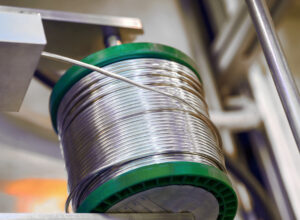
Nichrome Wire Safety: Top Tips for Working Safely
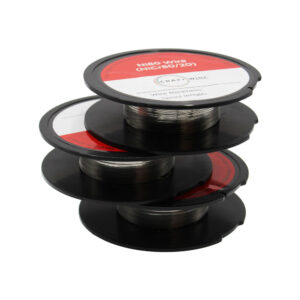
Best Wire for Electronics Projects
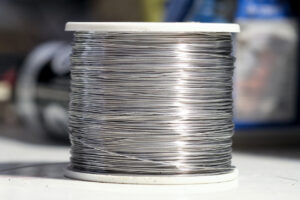
Is Ni80 Wire Suitable for DIY Heating Elements
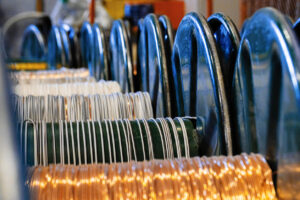
Wire Grades Explained
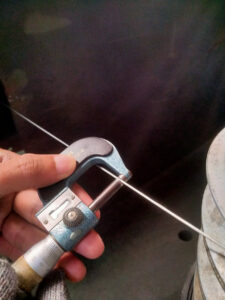
How Wire Diameter Affects Strength and Flexibility
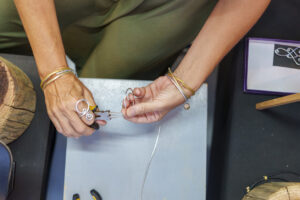
How to Cut and Shape Wire for Custom Applications

Can Wire Be Used in 3D Printing?
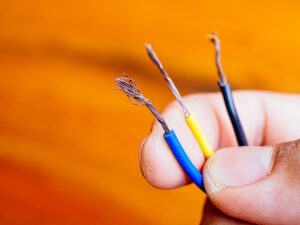
How Wire Composition Affects Conductivity
